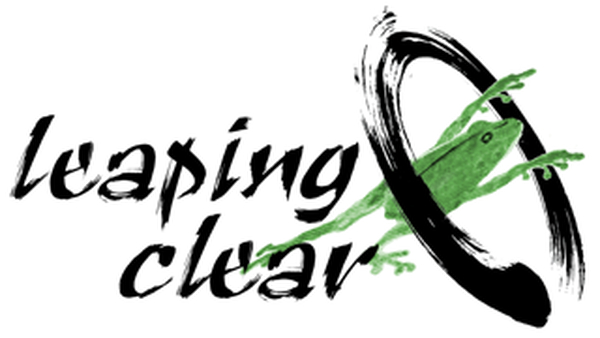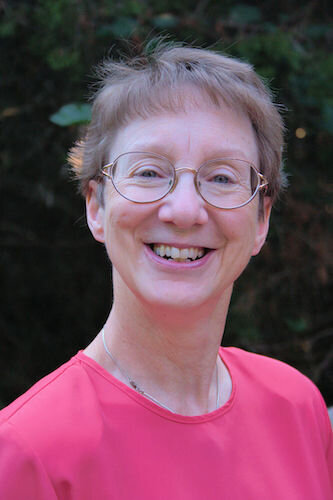Terri Maue
Going
The spacious room eases the tightness in my chest. As if a too-small chamber would cause the painful words to ricochet. Now, I can breathe before they strike my ears.
Outside the French doors, a desert garden shimmers in the summer sun. Inside their glass enclosure, I listen to my beloved friend plan to die.
She is propped on pillows in a hospital bed. So many hospital beds lately. This is her last.
Her words do not surprise me. She’d told us her intentions months ago. Still, in this place, her declarations strike blows to my heart. They rip apart the scrim of pretense that I used to dull reality these past six months.
In a weak, clear voice, she says she will no longer eat or drink. She hadn’t done much of either in weeks, yet her pronouncement tolls with finality.
The nurse, an older woman whose calm tone carries the gravity and kindness of experience, notes the decisions. In detail, she explains the effects of my friend’s medications. Except for those that control pain, my friend declines every drug.
I can scarcely bear to hear her do this. I’ve often thought that when my time comes, I’d make the same decision. But if my current turmoil is any clue, every shred of my being will resist. I will cling by my ragged fingernails to the life I have loved.
I cannot imagine how much courage it will require to relinquish the only existence I have ever known. Logic, faith, and wishful thinking aside, I simply do not know what happens when we die. I know only the void for those left behind.
My friend is brave.
And in that room, her dear husband tries to match her bravery. How hard is it for him to affirm his support for his wife’s decisions? Desolation awaits him. Echoing empty rooms. The abiding wound of loneliness.
Would he snatch her to him if he could, for a few more days, for one more whispered word, for one last smile? Or does he draw strength from knowing his heartbreak shields her from one more line of pain etched in her face?
His chin trembles. I avert my eyes.
After we leave the room, tears haunt me. A gray curtain descends upon the world. Yet I am determined to remain present.
Death in the abstract is mysterious, even awe-inspiring. Death in the flesh is heart-wrenching.
I continue to visit her. One afternoon, I sit on the side of her bed, hold her hand, and silently recite the Heart Sutra, the potent reminder of impermanence.
Form is exactly emptiness; emptiness exactly form.
Feelings, perceptions, mental formations, consciousness are also like this.
Finished, I lay her hand on the bed.
She opens her eyes. “Your touch was so light,” she whispers. “I forgot you were here.”
My throat catches. That I could be with her and not disturb her peace is my most profound wish.
A few days later, her husband calls. She requests no more visits. With a sharp ache, I realize my presence brings suffering now, not comfort. Her will to connect drags her from repose to this world of pain. My logical mind understands, but my fractured heart cries. How can I fail to serve her, after she has so often served me?
During one vacation in happier times, I forgot to bring my caftan, the comfortable robe I loved to wear while eating breakfast and writing in my journal. I bought a knit dress to replace it, but it was too short and constrictive.
Later, alone in the upstairs hallway, she offered me one of her oversized nightshirts. She did it without fuss, without even commenting on my struggle to make my purchase work. That was my perceptive, self-effacing friend.
Guilt pricks me for abandoning her, but I respect her need and stay away. This is not about me; it’s about her.
Days elapse, twice the time we expected. The hospice nurse says her heart is strong. How well I know.
Finally, her husband sends word she is no longer conscious. Her time is near.
I must see her one last time. I steel myself and hold my husband’s hand as we enter her room. She is a small, skeletal form in the bed, arm wrapped around the alpaca teddy bear her sister-in-law sent. Her head is turned to the side, eyes sunken in their sockets, strands of gray hair lying limp against the pillow. She breathes with her mouth open. Shallow breaths.
Such a tiny form. Body nearly done.
Classical music drifts overhead. Drawn shades shut out the harsh sunlight. Nothing to pull her back to this world. Everything to serve her journey to the next.
Silently, I tell her it’s all right. We’ll be okay. She can go.
I want to touch her but fear she will wake. My father did, a day or so before his death. He opened his eyes, scanned his bedroom, and asked, hope in his quavering voice, “Am I home?” My sister, wishing to reassure him that he was no longer in the hospital, answered, “Yes, you are.” He looked around, sighed, and said, “No.”
Home is not here anymore.
That evening, my friend crosses the boundary.
Now I look at her photo every day, the four of us at Mount Charleston. Her smile, her bright red hair, her body even then being destroyed. We did not know it. We thought we had so much time.
I sit on my front porch and remember our talks. I hoped for so many more. My husband and I planned to retire near them. I imagined renting the house across the street, popping over for coffee, going for walks after sundown.
I miss her. Some Buddhists say that humans traverse the in-between for 49 days. I send love and good will to her in case they are right and I can ease her journey.
As I write this, ten days remain in her crossover period. Her passage may already be finished, but I will persevere. I will serve her if necessary, and if not, the energy will go to those who need it, wherever they are. She will see to that.
That’s the kind of person she is.
Terri Maue
Terri Maue first encountered meditation in high school, in the form of Christian centering prayer. Over the ensuing 50 years, she has explored Native American spirituality, feminist wicca, and Zen. In 1999, she found her home in the Buddhist Theravada tradition. She is strongly drawn to the simple, but not easy, practice of present awareness. Daily sitting meditation renews her, and practicing presence in the midst of everyday life strengthens and grounds her. She is forever grateful to her teachers, known and unknown, who have guided her way.
Terri is a retired professor emeritus from Emby-Riddle Aeronautical University. After years of teaching students the joys of the English language, she is pursuing her lifelong dream to write a series of cozy mystery novels, featuring an intrepid amateur who renews herself in nature, and her lifelong friend, a 60s child who is a successful businesswoman but never lost her deep connection to the greater universe. Terri’s essay “Dad’s Legacy” is featured on NPR’s national website This I Believe. She lives in Las Vegas with her husband Eddie, on the edge of a wetlands park. (Yes, there are wet places in the desert!)
More on Terrie Maue’s work can be found on our Links page.

